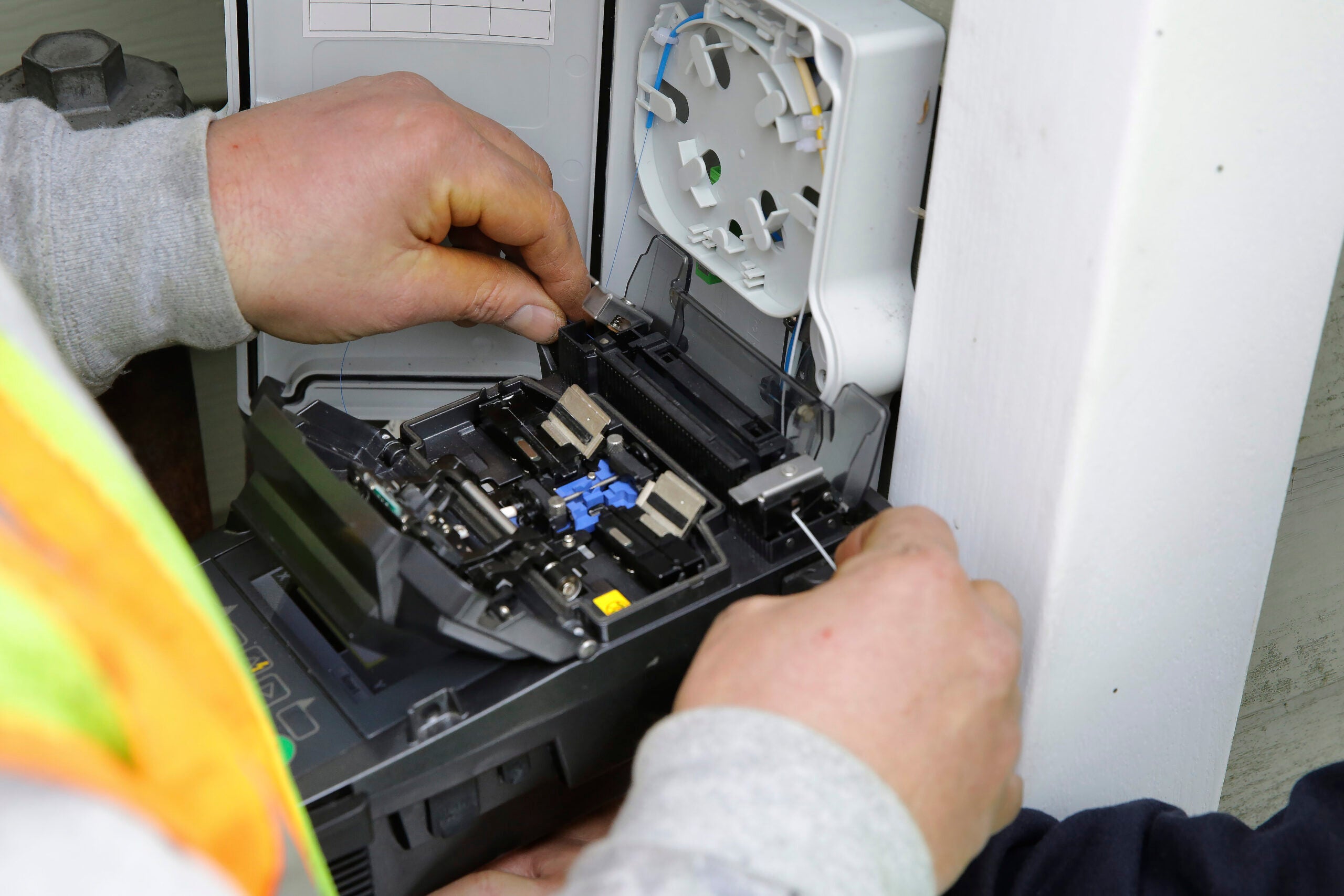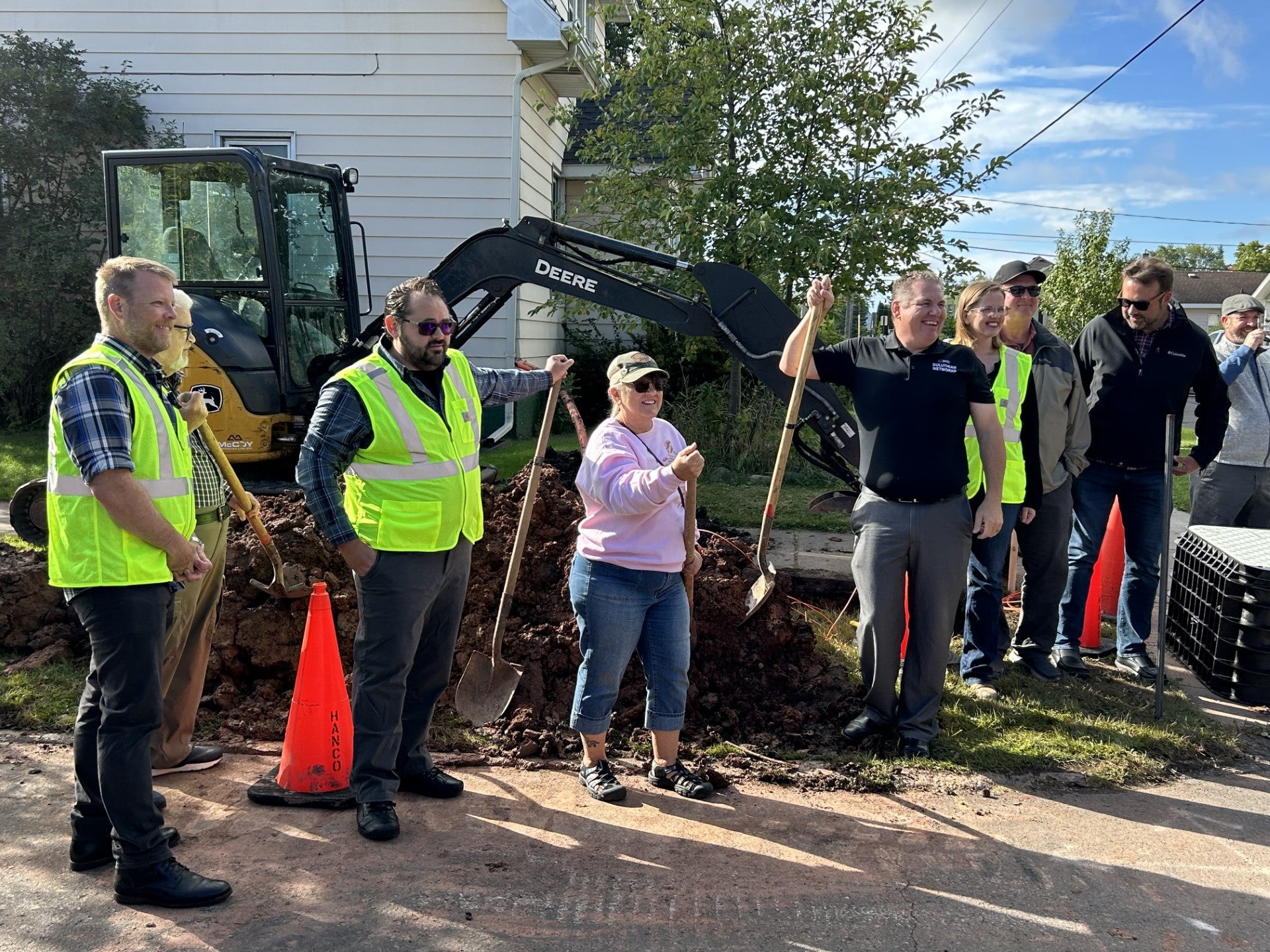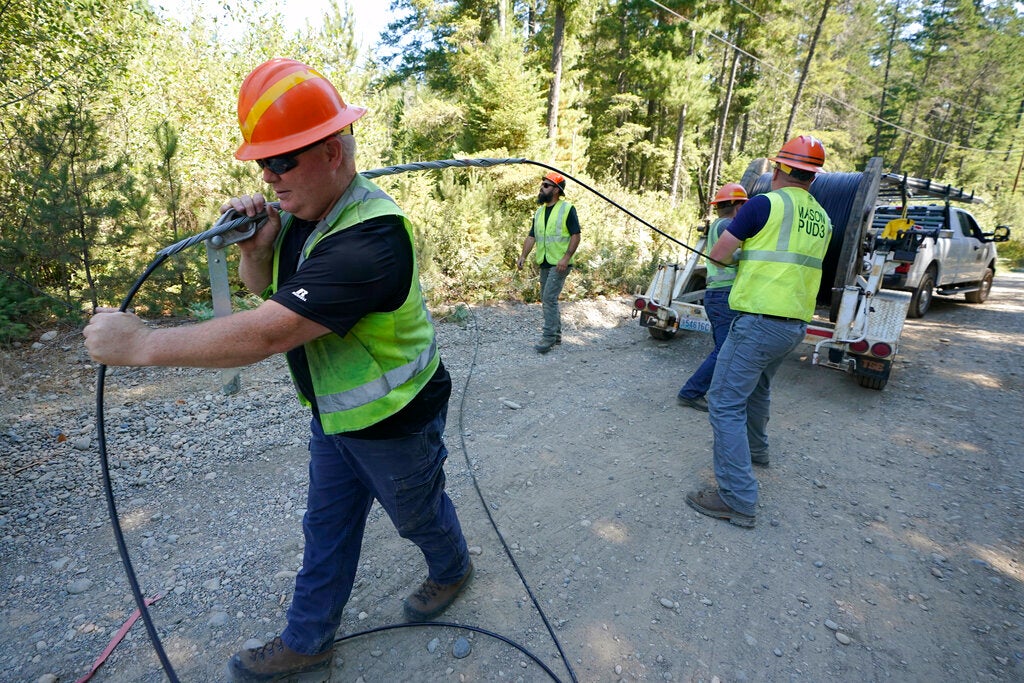Wisconsin will receive $1.1 billion to spend on broadband expansion as part of the federal Infrastructure Investment and Jobs Act signed by President Joe Biden.
The state-by-state breakdown of the funding was announced Monday by the Biden administration. Nationwide, the infrastructure law signed by Biden in 2021 will spend a total of $42.5 billion on high speed internet grants.
Speaking to reporters Monday afternoon, Mitch Landrieu, a senior advisor to the president and the White House infrastructure coordinator, called the investment a “big deal,” one that rivaled the electrification of rural America in the 1930s.
News with a little more humanity
WPR’s “Wisconsin Today” newsletter keeps you connected to the state you love without feeling overwhelmed. No paywall. No agenda. No corporate filter.
“High speed internet is not a luxury,” Landrieu said. “It’s a necessity if anybody wants to fully participate in society.”
States had known since last year what kind of the range of funding they might receive from the federal broadband investment. Wisconsin was initially expected to get anywhere between $700 million and $1.2 billion, meaning the amount announced Monday hit near the high end of that spectrum.
The federal government spent the last 18 months mapping broadband access state by state, with the goal of using these funds to achieve universal broadband access by 2030. Landrieu said that in Wisconsin, 253,000 homes and small businesses either had no high speed internet or lacked access to “minimally acceptable” speeds.
Joining Landrieu to announce the funding were Wisconsin U.S. Sen. Tammy Baldwin and U.S. Rep. Marc Pocan, both Democrats who voted for the funding.
“These days, having broadband is like having water or electricity in your home,” Pocan said. “You absolutely have to have it.”
Landrieu said the bulk of the funding would go toward laying fiber, or high-speed fiber optic cable in the ground.
“Essentially, 80 percent of that is digging dirt,” Landrieu said. “A lot of it is manufacturing the cable and then just the hard work of laying out where it needs to be based on the mapping that has been done. And then we expect the work to be complete 100 percent by 2030 across America.”
While the funding is substantial, Evers had hoped state government would also spend a share of its record $7 billion surplus on broadband expansion. Evers called for setting aside $750 million in state broadband funding, requiring Wisconsin’s Public Service Commission to spend at least $75 million in each of the next two years.
The PSC argued that because federal funding is being disbursed slowly, state funding could help meet immediate demand. Republicans who run the Legislature rejected the governor’s plan, arguing it was unnecessary given the influx of federal funding on the way.
In order to hit higher broadband speeds throughout the state, with downloads of 100 megabits per second and uploads of 20 megabits per second, the PSC estimates it would cost a total of about $1.8 billion. The PSC indicated that the state could potentially hit that benchmark between federal funding and the state funds Evers proposed.
Landrieu said the next step in the process would be for the Evers administration to present a plan to the federal government on how to use the funding. Construction, Landrieu said, could begin early next year.
Wisconsin Public Radio, © Copyright 2025, Board of Regents of the University of Wisconsin System and Wisconsin Educational Communications Board.






